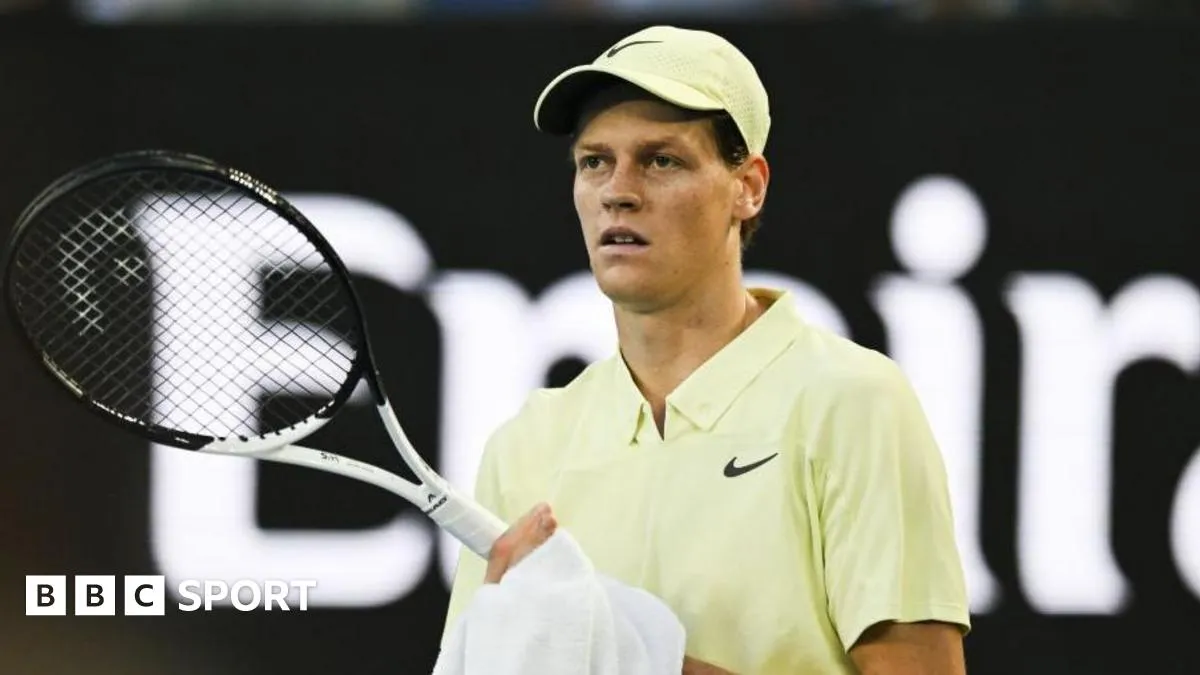
The tennis world has been divided for months over Jannik Sinner's doping case, with the recent announcement of a three-month ban sparking further questions and debates. Some players have expressed skepticism, questioning the integrity of a clean sport, while others believe Sinner is merely taking responsibility for the mistakes of others.
The World Anti-Doping Agency (WADA) initially pursued a ban of up to two years but eventually reached a settlement after acknowledging that Sinner had inadvertently ingested a banned substance without any intent to cheat. The current world number one has not played since his triumph at the Australian Open last month and will remain banned until May 4. This timeline allows him to prepare for the year's second Grand Slam, the French Open.
The decision has been met with criticism from both current and former players. Switzerland's Stan Wawrinka, a three-time Grand Slam champion, posted on X, expressing disbelief in a clean sport. Meanwhile, tennis pundit and former British number one Andrew Castle told BBC Sport that any settlement involving drug bans or suspensions is uncomfortable and poses a reputational risk for Sinner and the sport as a whole.
Former British number one Tim Henman commented on the timing, stating it seemed too convenient for Sinner, who can now participate in Roland Garros. Henman criticized the decision, suggesting it leaves a sour taste for the sport.
Former Wimbledon finalist Nick Kyrgios shared his disapproval, stating that Sinner's team seemed to have taken the best possible option, leaving the sport of tennis appearing unfair.
In contrast, former French Open doubles champion Feliciano Lopez defended Sinner, arguing that a longer suspension wouldn't necessarily make the sport cleaner. He emphasized that Sinner took responsibility for his team's errors.
The Professional Tennis Players Association (PTPA) has criticized the inconsistencies in recent doping cases, launching a scheme for players facing doping allegations to access pro bono legal support. Co-founder and former British doubles player Tara Moore, who experienced a similar situation, questioned the negotiation involved in Sinner's case.
The PTPA's statement highlighted a lack of transparency and consistency, claiming that the current system is merely a club with tailored deals rather than a fair process.
Former Wimbledon champion Simona Halep has accused the International Tennis Integrity Agency (ITIA) of double standards, a claim denied by the agency. Halep's four-year ban for doping offenses was later reduced, and she criticized the differing treatment of world number two Iga Swiatek, who received a one-month ban.
Sinner's lawyer, Jamie Singer, stated that the Italian's team should bear responsibility for the errors leading to Sinner's failed drug tests. The ITIA found that Sinner was inadvertently contaminated with the banned substance clostebol by his physiotherapist during a massage, with no intent or competitive advantage gained.
The ATP, which governs men's tennis, emphasized the importance of players managing the products and treatments they or their teams use carefully.
Italian Tennis and Padel Federation President Angelo Binaghi assured that Sinner would be warmly welcomed at the Italian Open, commencing in Rome just days after his ban concludes. Binaghi expressed relief that Sinner's innocence was recognized, allowing him to focus on a comeback with a clear conscience.